Local Governments Are Close to You
Learning Objectives
- Differentiate the purpose and roles of federal, state, and local governments
- Appreciate how local government serves your community
- Understand the difference between homeowners’ associations (HOAs) and local governments
The water we drink, the streets we drive on, the police and fire protection we rely on – local governments provide these and other services every day. Through counties and city government, people address the “close to home” needs they have in common. Local governments shape our daily lives.
Often when people speak about “the government,” they mean the United States government. But we have three distinct levels of government in this country: national, state, and local. In our federal system of government, national, state, and local governments each have their areas of responsibility and authority. Generally, national and state governments set the context for local government.
The national government in Washington, D.C., is responsible for dealing with issues that affect the entire country. We often call our national government the “federal” government because it is made up of states. North Carolina is one of 50 states that make up the United States of America. Each state government is responsible for making laws and providing services for everyone in the state. Counties and cities deal with local public issues and seek to improve quality of life for the community.
Each government has
- the responsibility to serve the best interests of the people within its jurisdiction,
- the authority to make and enforce laws and to provide services to all those people, and
- the authority to tax to raise funds to support its work.
Each government has elected officials who are chosen by its citizens and responsible for its work. Each type of government provides certain services, regulates certain kinds of activity, and undertakes programs to improve public well-being.
Local Governments
There are two kinds of general purpose governments in North Carolina: counties and municipalities. “City,” “town,” and “village” are terms used for municipal governments. In this resource, we often use “city” to refer to all municipalities. The state is divided into 100 counties. Each municipality is located within one or more counties.
Local governments focus on local issues. Like other governments, they provide services, make and enforce laws, and collect taxes to support their work. Local governments also have the responsibility to serve and protect everyone in their jurisdiction. They also often undertake programs to improve the local community.
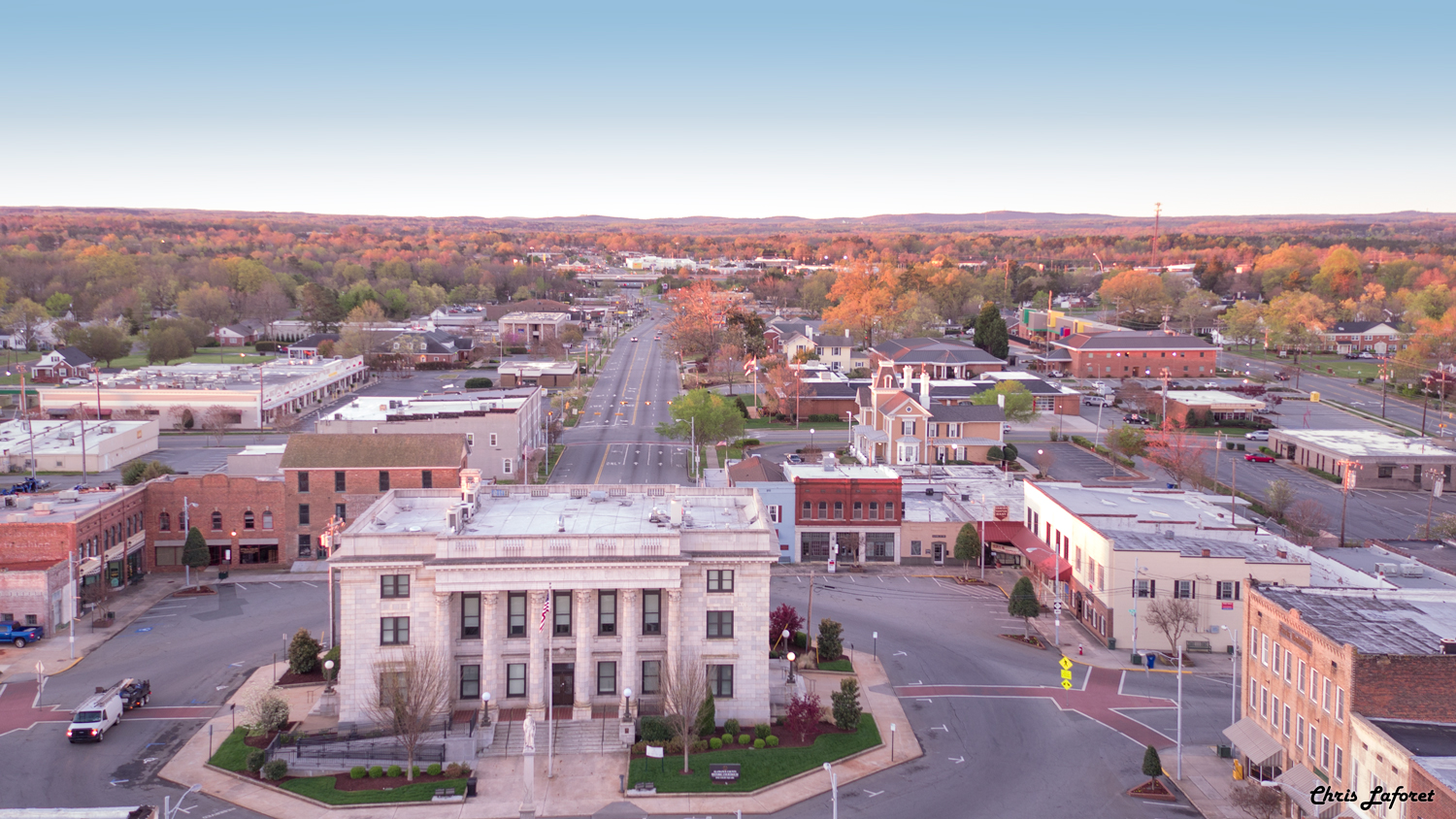
Local governments are created, or authorized, by state governments. In North Carolina, local governments can do only the things authorized by the state government. Some states allow local governments more leeway to do things so long as they are not prohibited by the state. The state can also specifically prevent local governments from doing things that may contradict the policy or priorities of state government.
There is often considerable overlap between local issues and broader interests. For example, one city’s use of a river to carry away its wastewater can interfere with the use of that same river as a source of drinking water by cities downstream. Local governments often work closely together to deal with such problems. Most North Carolina local governments participate in one of 16 regional councils of government in the state. Often, individual local governments join the regional council in their areas to facilitate interjurisdictional and regional efforts. Member governments pay dues to support the work of the regional council and appoint representatives to discuss problems they share and to work out ways to deal with those problems.
Regional Council Map
To learn more about the North Carolina regional councils, visit their website. Scan this code with the Metaverse App to open an AR experience.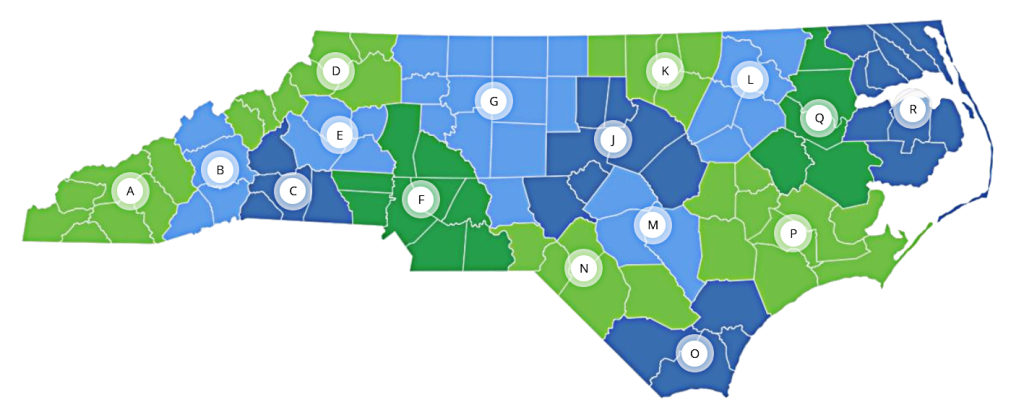
Local governments also cooperate directly with each other. They usually have mutual aid agreements to help each other fight fires or deal with other emergencies. Often a county and the municipalities within it work together in other ways, including building libraries or parks, setting up recycling or economic development programs, planning and controlling land use, and collecting taxes.
State and Federal Governments
State programs to improve the lives of citizens include recruiting industry to the state, conducting agricultural research, and promoting the arts, among other activities. The state government makes the laws that define most crimes and many family and business relationships. It also regulates other issues such as insurance rates, waste disposal, and development along the North Carolina coast. North Carolina state government creates local governments and gives them their authority. State government provides many services that affect people directly. It is responsible for building, maintaining, and policing the state’s highways. State government provides recreation opportunities in state parks, forests, and other recreation areas. It helps people locate jobs and provides unemployment benefits to those who are unemployed.
N.C. Commerce Park and Local Government Collaboration
The N.C. Commerce Park in Alamance County, North Carolina, is an economic development success story and a great example of how local governments work together to create significant public value. The Park is an 1,100-acre economic development zone, located in the Hawfields area of eastern Alamance County. Site development involved $12 million for infrastructure, jointly funded by the three local governments (Alamance County and the cities of Graham and Mebane) and the N.C. Department of Transportation.
Later, the three local governments also each contributed and additional $100,000 to the Alamance County Chamber of Commerce to oversee the Park’s certification as an industrial site. Other partners in the project included several state agencies (including the Department of Commerce and Department of Transportation) and dozens of private landowners. So how did this partnership come to be? There was a long history of collaboration amongst the local governments and between the local governments and the Chamber of Commerce. The local governments and the Chamber had worked well together in the past and had developed a certain amount of trust between them. The city manager of Graham noted at the time that “Our cities have long understood the value of partnership and have established seamless operations to ensure continued cooperation.” So when an opportunity arose to develop unused commercial property to attract a Wal-Mart distribution facility, those existing relationships were leveraged to take advantage of that first opportunity.
Each partner contributed in significant ways to the project, which could not have been accomplished by any one of the local governments, acting alone. The first few years of the development of the park saw over $220 million in private investment and a total of 750 new jobs between the three entities that originally located there (Wal-Mart and Lidl distribution centers and Prescient Corporation).
The national (or “federal”) government makes laws and carries out policies that affect the entire country. The United States Constitution applies to all residents of the United States and to all governments in the United States. State and local governments may not pass or enforce laws that contradict the Constitution. For example, the Constitution requires that the national government, as well as state and local governments, ensure “equal protection under the law” to all people.
Among the services operated by the federal government are mail delivery, Social Security benefit payments, and recreation opportunities in national parks, forests, and recreation areas. National government programs for the general well-being include defense, research, and transportation. The Army, Navy, and Air Force provide national defense. The National Science Foundation, the National Institutes of Health, and other agencies support studies of diseases and possible cures. Federal government grants support highway and airport construction. The national government regulates activities such as the manufacture and sale of medicines, the sale of stocks and bonds, and the operation of nuclear power plants.
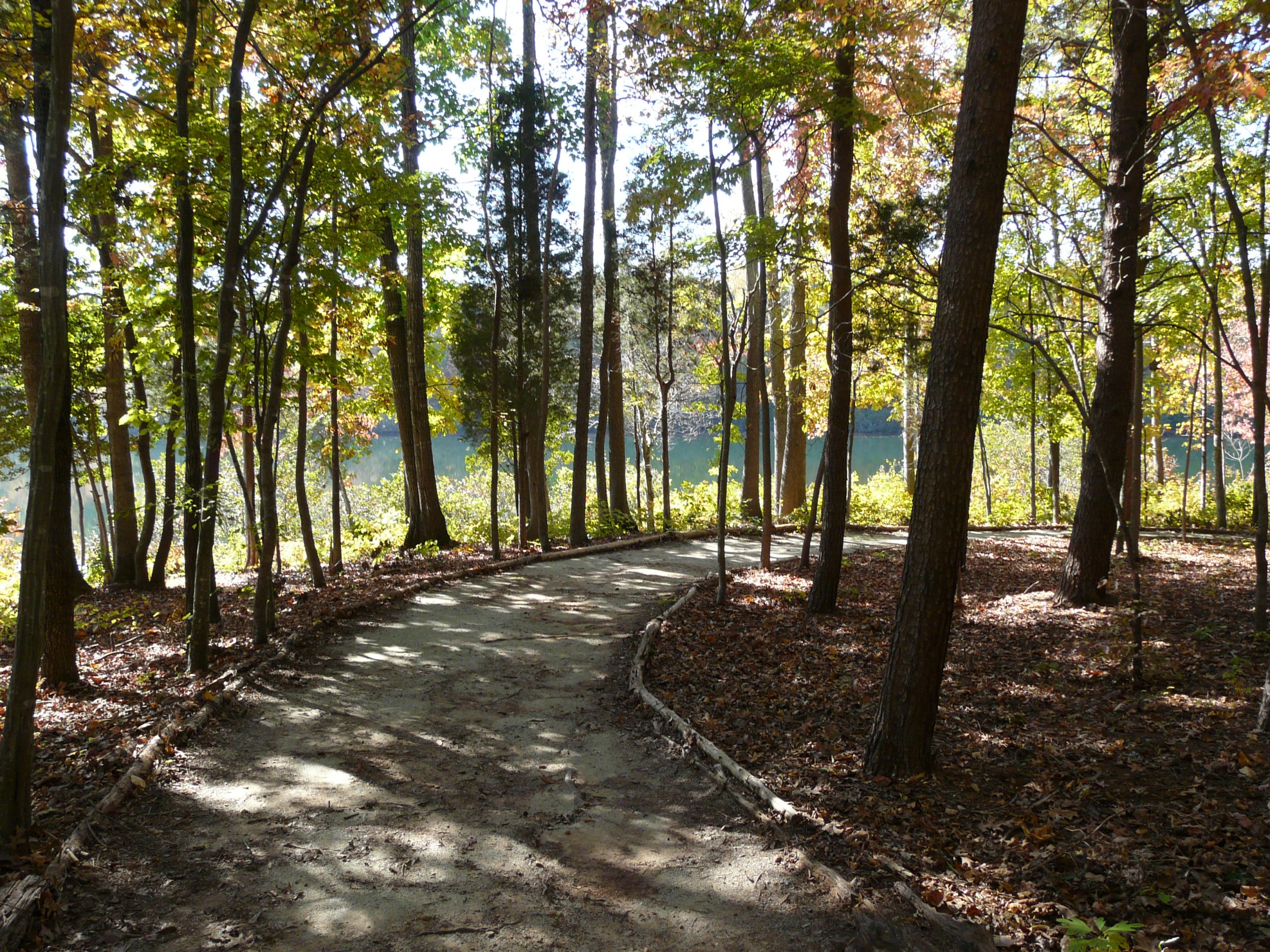
The national and state governments influence local governments in many ways. Through mandates, federal or state governments require local governments to provide or carry out services in specified ways. For example, mandates say how counties should operate programs of assistance like Medicaid and food stamps. Federal and state governments also provide grants to help fund some local government programs like police services or housing repairs.
In some parts of North Carolina, federal and state governments greatly influence local governments through their decisions about the location and operation of facilities like hospitals, prisons, parks and forests, and military bases. Closing a hospital or military base, expanding a prison, or changing policies on timber harvest or tourism on state or federal land often has a major impact on the local economy. Local governments near those facilities are directly affected by these decisions.
People and Local Government
North Carolina local governments should be responsible and responsive to the people. And all people should be responsible for and supportive of government. But who are “the people” local governments should serve? And which people are responsible for what local government does?
You and the other people who live in your county, city, town, or village make up your local government’s population. These residents are among the people who most regularly use the services your local government provides. If you have lived in your community for some time, you probably identify with your local government and feel some pride in it.
The community that your local government serves includes others besides residents. Your local government also serves people who work, shop, visit, or own property within its boundaries.
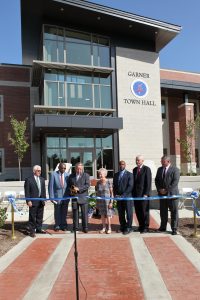
Any group of people who share common bonds can be thought of as a community. For example, you may think of yourself as belonging to other communities—a neighborhood, a region, or an ethnic or religious group. However, these informal communities do not have governmental authority or responsibility. They play a very different part in your life than local governments do. Local governments have the authority and responsibility to regulate what people do and also the authority to make people pay to support and protect the community.
Everyone in a local government’s jurisdiction must obey its local laws and pay local taxes. This includes not only the residents of the jurisdiction but also people who work, shop, visit, or own property there. Everyone, regardless of place of residence or citizenship, has the right to be treated fairly by officials of every local government in the United States.
Anyone who is born in the United States or whose parent was a United States citizen is automatically a U.S. citizen. People who are not U. S. citizens by birth can become citizens by meeting requirements set by the U.S. government.
Citizens of the United States are also citizens of the state in which they live. Citizens of North Carolina are also citizens of the county in which they live. Those who live within a municipality are also citizens of that municipality. Of course, there are also many people in each jurisdiction who are not citizens of that particular governmental unit. For example, when you travel to another state you do not automatically become a citizen of that state. Many people live in and remain citizens of South Carolina although their jobs are in Charlotte, North Carolina, for instance.
Some people who are citizens of other countries also travel, work, or live in North Carolina. The U.S. government issues documents that regulate how long citizens of other countries (aliens) may stay and what they may do here. But not everyone who comes to the United States is able to get these permissions from the U.S. government, so there are also many “undocumented” aliens here. All aliens–documented or not–do not have the rights of citizenship; they cannot vote or run for office. However, all aliens, documented or otherwise, must pay taxes and obey laws.
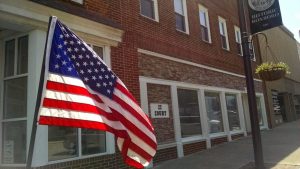
Although some government services are available only to citizens or documented aliens, all levels of government must provide basic public services and protection to everyone in their jurisdiction. The well-being of the entire community is the concern of each local government.
It is difficult to decide how best to meet the needs of all the people. People may disagree about where to locate a landfill or sewage treatment plant, or they may disagree about increasing local taxes to pay for public services. Local government provides the framework for discussing and deciding local public policies and creating programs that shape the community’s future.
All those who reside, work, shop, own property, or otherwise have an interest in, or visit a city or county have the right to request public services from the local government and express their concerns to local government officials. There are several ways to do this. You can call city or county offices, talk to local elected officials, write letters to the local newspaper, or attend public meetings. Many cities and counties use social media tools–such as Facebook, Twitter, and Instagram–to share information with and listen to citizens directly.
To help make local governments work, people need information about what the governments are doing. In North Carolina, most local government meetings must be open to the public. The state Open Meetings Law provides only a few special conditions in which local government officials can meet in private to conduct government business. Similarly, North Carolina’s Public Records Law provides that people have access to most government documents.
In some cities and counties, journalists attend many public meetings and report on them. Many local governments produce their own television programs and host web pages and have Facebook, Twitter, and other social media sites. You can expand your knowledge of public issues and programs by reading materials from newspapers and government web sites and social media sites, and by discussing issues with local government officials.
The EMS Department of Durham, N.C., uses its Instagram page to announce emergencies (left) and notify citizens of various programs (right).
For a list of many North Carolina newspapers, visit this link to the N.C. Press Association.
For a list of all N.C. municipalities with population and webpage links, visit the NCLM Municipal Directory.
For a list of all N.C. counties with webpage links, visit the NCACC Links to Counties.
Homeowners’ Associations (HOAs) are Not Governments
Today many people in North Carolina live in neighborhoods that are organized as homeowners’ associations (HOAs). HOAs are not governments, although they do many of the things that local governments do. Instead, HOAs are private, nonprofit corporations.
Residents of an HOA have a different relationship with the HOA than they do with local government. Here are some of the major differences.
- HOAs provide a way for their residents to have more or different services if they are willing and able to pay for them.
- All adult citizens who are constituents of a local government can vote for that local government’s governing board. Typically, only people who own property in an HOA can vote for HOA board members. Those who own more property often have more votes.
- Local governments must respect residents’ Constitutional rights to free speech, petition, equal treatment, and due process. As private organizations, HOAs are not subject to those restrictions.
- Local governments must follow state laws regarding public access to their meetings and records, the handling of public money, the services they can provide, and the actions they can take. The laws do not apply to HOAs, which are private corporations.
Developers create HOAs when they subdivide land. They place covenants and other restrictions on the land when they record the new lots at the county’s register of deeds office. Whoever buys one of those lots becomes a member of the HOA and agrees to abide by the HOA’s rules.
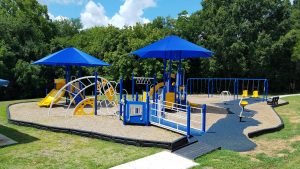
Developers also often deed some of the land to the HOA: streets and sidewalks, parks and greenways, and other spaces the residents use together. These are not public streets or parks or other places, however. They are the private property of the homeowners’ association, although the HOA may permit public use. Similarly, developers may install private water or sewer systems that become the property of the HOA. The HOA may be responsible for solid waste collection, as well as for maintenance of the streets and other HOA property.
Local governments often encourage or support HOAs because an HOA may reduce the local government’s financial responsibility for building and maintaining public facilities or providing services in the HOA neighborhood.
Each HOA has a governing board to enforce the covenants and restrictions and oversee the neighborhood. HOA members—the people who own the property within it—elect the HOA board. The HOA board develops policies for HOA services and either oversees service delivery or hires staff to do it. The board also sets the assessments each HOA member must pay. To keep the HOA in business, these assessments must cover the costs of providing HOA services. The HOA board can enforce payment because in buying a lot, each HOA member pledges the value of the property to support the HOA. The board can file foreclosure proceedings against the lot owner to collect an assessment, if necessary.
HOA boards can also authorize projects to improve the HOA area and can restrict both personal behavior and the use of property within it. For example, HOAs often plant flowers and trees and undertake various other sorts of neighborhood beautification.
HOAs: The Grass Isn’t Always Greener
HOAs can and do operate like mini governments within local governments (cities and counties), and while they are not governments, they certainly can be controversial. Consider the situation that occurred during a record drought in North Carolina.
One municipal water department enacted severe water conservation measures, yet residents of a neighborhood in the city were told by their HOA to keep their grass green. The HOA’s letter to residents said “While the Board is aware of the inconvenience presented by the heat and water restrictions, we believe that having neatly landscaped lawns of grass is of the utmost importance to our community.”
While other local homeowners’ associations temporarily relaxed restrictive covenants requiring green grass and manicured lawns, this particular HOA would not give its residents a break. At one point a member of the HOA’s landscaping committee expressed concern about the situation on the local news, which prompted her removal from the landscape committee. So what were residents to do? Keep the grass green and face penalties from the city, or let it go brown and face penalties from the HOA?
After more residents voiced concern over the conflict, the HOA board eventually met and acknowledged the “unfortunate timing” of the letter, which was sent shortly before city water restrictions were formally announced. The board eventually backed off mandating green grass and avoided escalating the conflict. Despite the authority that the HOA had to require green grass in the neighborhood, it was the city’s decision to restrict water usage during the drought that ultimately prevailed.
Local governments must consider what is good for the broader community. In times of drought, they must make difficult decisions–like restricting water use, for example–to ensure essential services such as drinking water and fire protection for everyone. HOAs have their place in providing community services, but ultimately local governments establish the parameters within which HOAs must operate.
Neighborhood covenants and restrictions may limit where cars can be parked, what colors houses can be painted, whether residents may use clotheslines or plant gardens, how loudly residents can play music, and so on. HOA boards can enforce their policies by assessing fines or imposing sanctions on violators. For instance, they might prohibit a resident who did not follow HOA policies from using the HOA swimming pool.
HOA covenants and bylaws differ from one HOA to another. Sometimes local governments may help shape these arrangements when negotiating subdivision approval, annexation, or the approval of public infrastructure, but otherwise local governments have little to say about the organization and operation of HOAs.
Take Action
✔ Explore the websites for the county and municipality (if applicable) where you live.
✔ Find information about the elected officials that represent you and the services your local governments provide.
✔ Do you live within an HOA? If so, learn about the HOA. Who serves on the board? What services does the HOA provide?
✔ Find social media sites for the local government jurisdictions in which you reside. What kind of information do you find there?
✔ Find out which newspapers report on the actions of your local governments. What are some stories about local government actions? How might those actions affect you?
the division of authority between national and state governments
the right to use legal authority, or the territory over which a government can use its authority
commitment by local governments to assist each other in times of need
facilities, services, and installations needed for the functioning of a community, such as streets, water lines, and public buildings like schools and community centers
property set aside for industrial uses such as manufacturing and distribution facilities
a group of business people formed to promote business interests in the community
a legal order by which one government requires actions by another government
a program designed to pay for medical care for people in financial need; federal program, but administered by county departments of social services in North Carolina
money given by state or federal government to local governments to fund local projects
the total number of people living in a designated area such as a city or county
a person who lives in a designated area such as a city or county
a grouping of individuals and families connected through some shared characteristic; people who live in the same government jurisdiction
a person who has full rights in a country because he or she was born there or has been given those rights by the country
a city, town, or village that has an organized government with authority to make laws, provide services, and collect and spend taxes and other public funds
a person living in a country where he or she is not a citizen
a state law (G.S. 143-318) requiring most meetings of local governments to be held with advanced notice and open to the public
a state law (G.S. 132) declaring that most government records (emails, documents, maps, and so forth) belong to the people and must be freely available and accessible to the public
a group of residential properties organized into a neighborhood by a real estate developer and maintained as a private, nonprofit corporation
a group of persons formed by law to act as a single body
a restriction on the use of property, land, money, and so forth agreed upon by two parties
an elected county office tasked with managing public records such as property records, birth and death certificates, and marriage licenses

